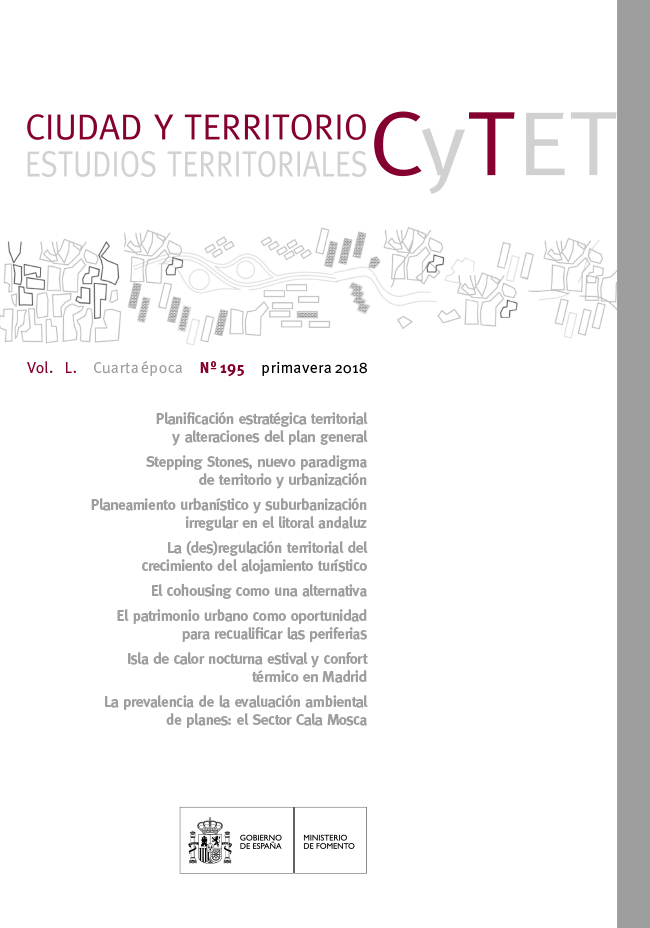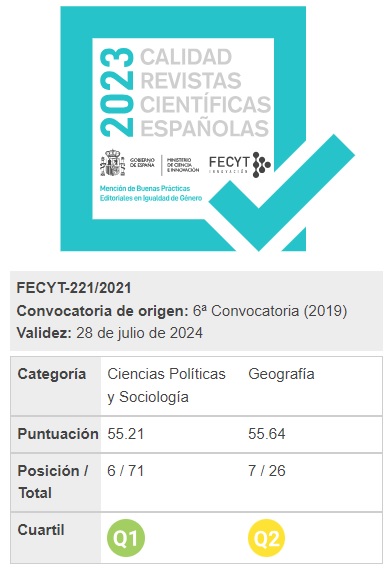The territorial (de) regulation of the growth of tourist accommodation. The example of Lanzarote, The Canary Islands (1991-2008)
Keywords:
Land-use planning, tourism, accommodation, moratorium, LanzaroteAbstract
Since the beginning of the 1990s, the first measures regulating tourism in the Spanish
archipelagos began to be approved. In the Canary Islands, these measures were delayed until the
end of that decade, except in the case of Lanzarote, where the tourism growth had been tried to be
regulated by the Insular Plan of 1991 and its revision of 1998. Despite the achievements, the
measures have not achieved the desired results. Moreover, their non-compliance has uncovered a
generalized scenario of urban corruption. The objective of this paper is focused on the analysis of
the regulatory processes developed in Lanzarote in 1991 and 1998, with the tourist moratorium
approved in this last year. In particular, we will analyze the case of canceled urban planning licenses
that were granted after this last year and which were a flagrant breach of the tourist moratorium.
Several sources have been used to carry out this study: normative documents, reports, territorial
planning and urban planning plans, official statistics, society registration information and
journalistic sources. The analysis shows the inability of planning to reorient the tourist and
territorial model on the island, always overrun by the interests of owners and economic agents; the
disaffection of the touristic activity and its administrative management with the urban discipline
and, finally, the heterogeneity of interests, from the local to the international scale, which underlies
the non-fulfillment of the tourist moratorium of the island.
Downloads
Downloads
Published
How to Cite
Issue
Section
License
Copyright (c) 2018 Juan Manuel Parreño Castellano, Alejandro González Morales, José Ángel Hernández Luis

This work is licensed under a Creative Commons Attribution-NonCommercial-NoDerivatives 4.0 International License.
Considering the provisions of the current legislation on Intellectual Property, and in accordance with them, all authors publishing in CyTET give -in a non-exclusive way and without time limit- to the Ministry of Transport, Mobility and Urban Agenda the rights to disseminate, reproduce, communicate and distribute in any current or future format, on paper or electronic, the original or derived version of their work under a Creative Commons Attribution-NonCommercial-NoDerivative 4.0 license International (CC BY-NC-ND 4.0), as well as to include or assign to third parties the inclusion of its content in national and international indexes, repositories and databases, with reference and recognition in any case of its authorship.
In addition, when sending the work, the author(s) declares that it is an original work in which the sources that have been used are recognized, committing to respect the scientific evidence, to no longer modify the original data and to verify or refute its hypothesis. Author(s) also declare that the essential content of the work has not been previously published nor will it be published in any other publication while it is under evaluation by CyTET; and that it has not been simultaneously sent to another journal.
Authors must sign a Transfer of Rights Form, which will be sent to them from the CyTET Secretariat once the article is accepted for publication.
With the aim of promoting the dissemination of knowledge, CyTET joins the Open Journal Access (OA) movement and delivers all of its content to various national and international indexes, repositories and databases under this protocol; therefore, the submission of a work to be published in the journal presupposes the explicit acceptance by the author of this distribution method.
Authors are encouraged to reproduce and host their work published in CyTET in institutional repositories, web pages, etc. with the intention of contributing to the improvement of the transfer of knowledge and the citation of said works.








 Enlace a CyTET en Linkedin
Enlace a CyTET en Linkedin